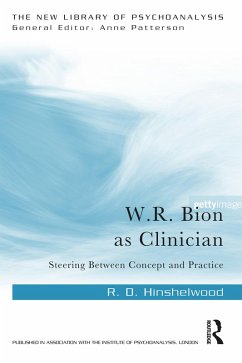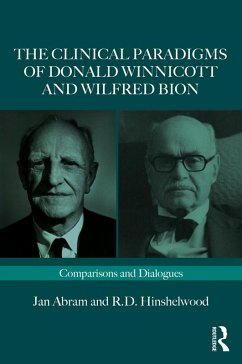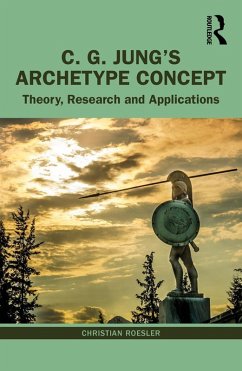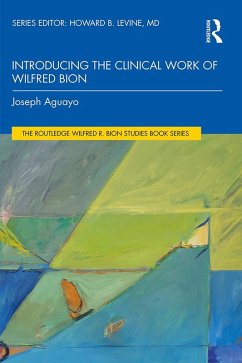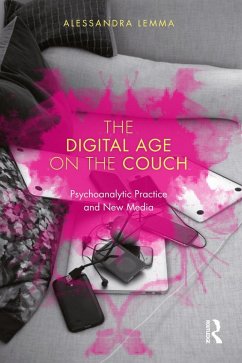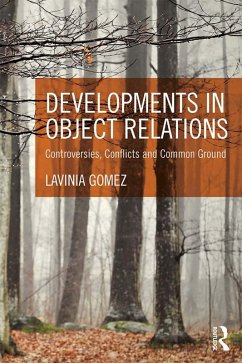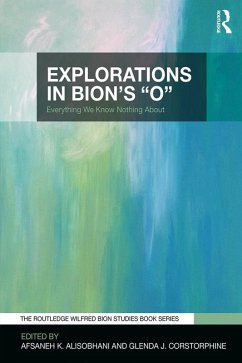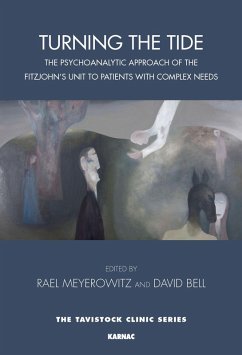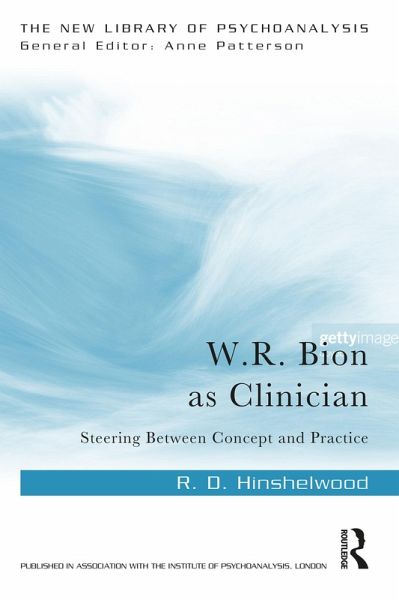
W.R. Bion as Clinician (eBook, ePUB)
Steering Between Concept and Practice
Versandkostenfrei!
Sofort per Download lieferbar
31,95 €
inkl. MwSt.
Weitere Ausgaben:

PAYBACK Punkte
16 °P sammeln!
Underpinned by rigorous close readings of his oeuvre, this book provides a comprehensive guide to the development, practice and evolution of Wilfred Bion's clinical psychoanalytic work.Starting with the significance of Kant during Bion's years as a student, the author traces the key influences on Bion in his psychoanalytic and personal development, progressing through Bion's particularly productive pre-psychoanalytic work based on social field theory, his well-known elaboration of Klein's schizoid mechanisms known as the theory of containment, all the while with his deeply thoughtful clinical ...
Underpinned by rigorous close readings of his oeuvre, this book provides a comprehensive guide to the development, practice and evolution of Wilfred Bion's clinical psychoanalytic work.
Starting with the significance of Kant during Bion's years as a student, the author traces the key influences on Bion in his psychoanalytic and personal development, progressing through Bion's particularly productive pre-psychoanalytic work based on social field theory, his well-known elaboration of Klein's schizoid mechanisms known as the theory of containment, all the while with his deeply thoughtful clinical approach inspired latterly by an understanding of literary creativity. Extending this unique emphasis on Bion's clinical work, rather than his theory, Hinshelwood also explores how Bion's early traumatic experiences helped shape his attitudes and approach to effective clinical work.
With comprehensive coverage of the key tenets of Bion's work, this should be essential reading for psychoanalysts and psychotherapists in practice and in training who seek a clear guide to the practical applications of his theory.
Starting with the significance of Kant during Bion's years as a student, the author traces the key influences on Bion in his psychoanalytic and personal development, progressing through Bion's particularly productive pre-psychoanalytic work based on social field theory, his well-known elaboration of Klein's schizoid mechanisms known as the theory of containment, all the while with his deeply thoughtful clinical approach inspired latterly by an understanding of literary creativity. Extending this unique emphasis on Bion's clinical work, rather than his theory, Hinshelwood also explores how Bion's early traumatic experiences helped shape his attitudes and approach to effective clinical work.
With comprehensive coverage of the key tenets of Bion's work, this should be essential reading for psychoanalysts and psychotherapists in practice and in training who seek a clear guide to the practical applications of his theory.
Dieser Download kann aus rechtlichen Gründen nur mit Rechnungsadresse in A, B, BG, CY, CZ, D, DK, EW, E, FIN, F, GR, HR, H, IRL, I, LT, L, LR, M, NL, PL, P, R, S, SLO, SK ausgeliefert werden.




